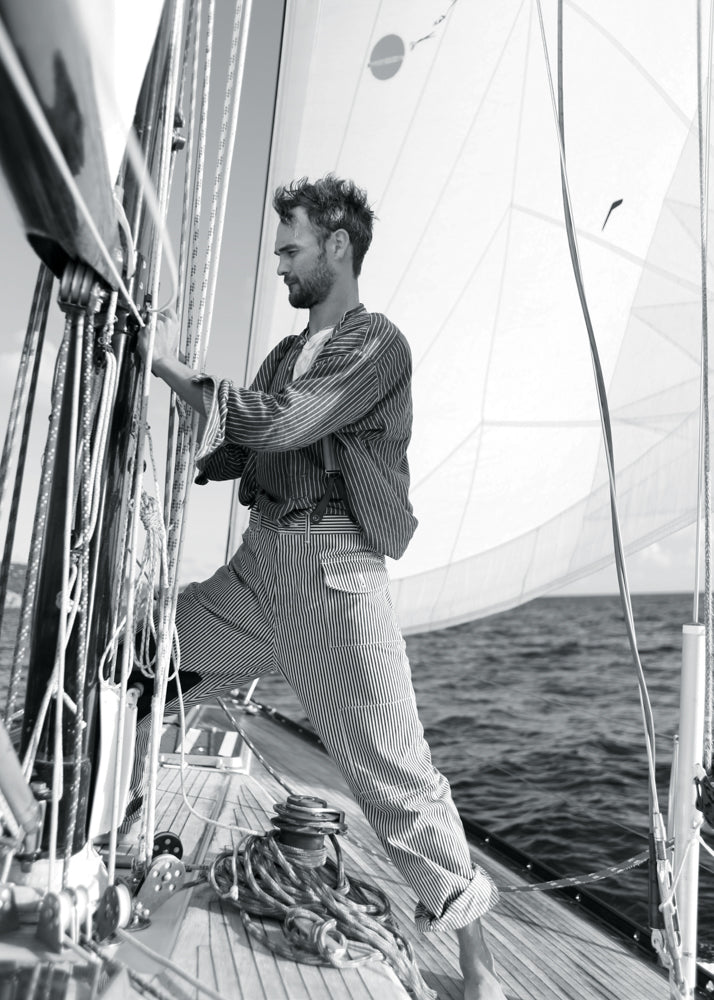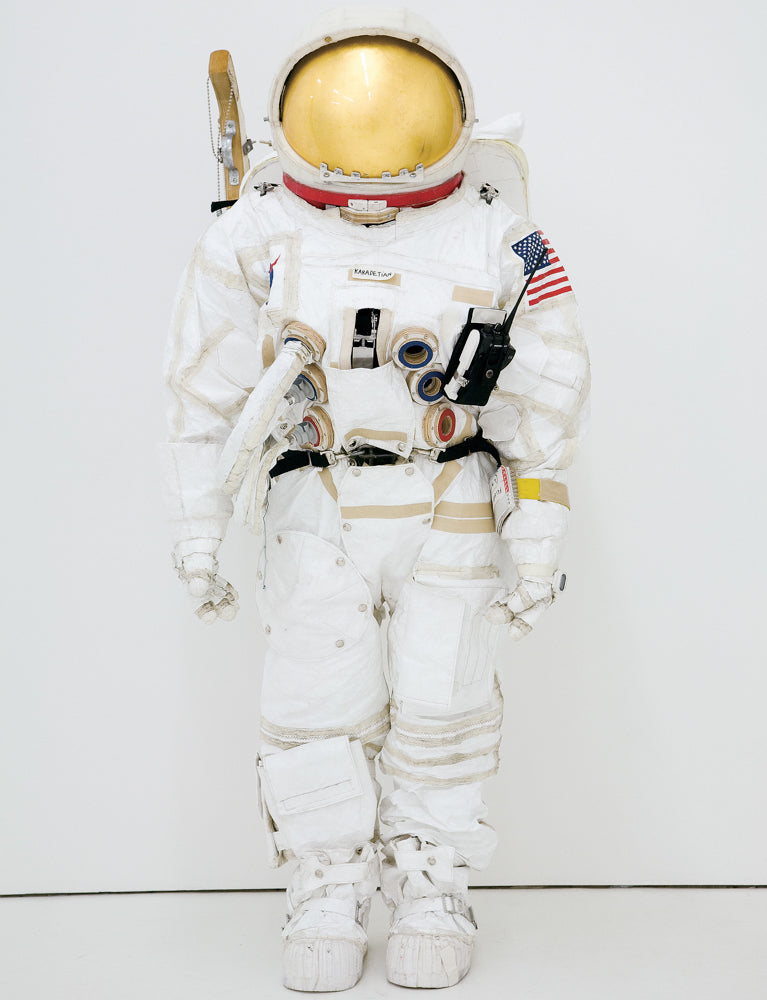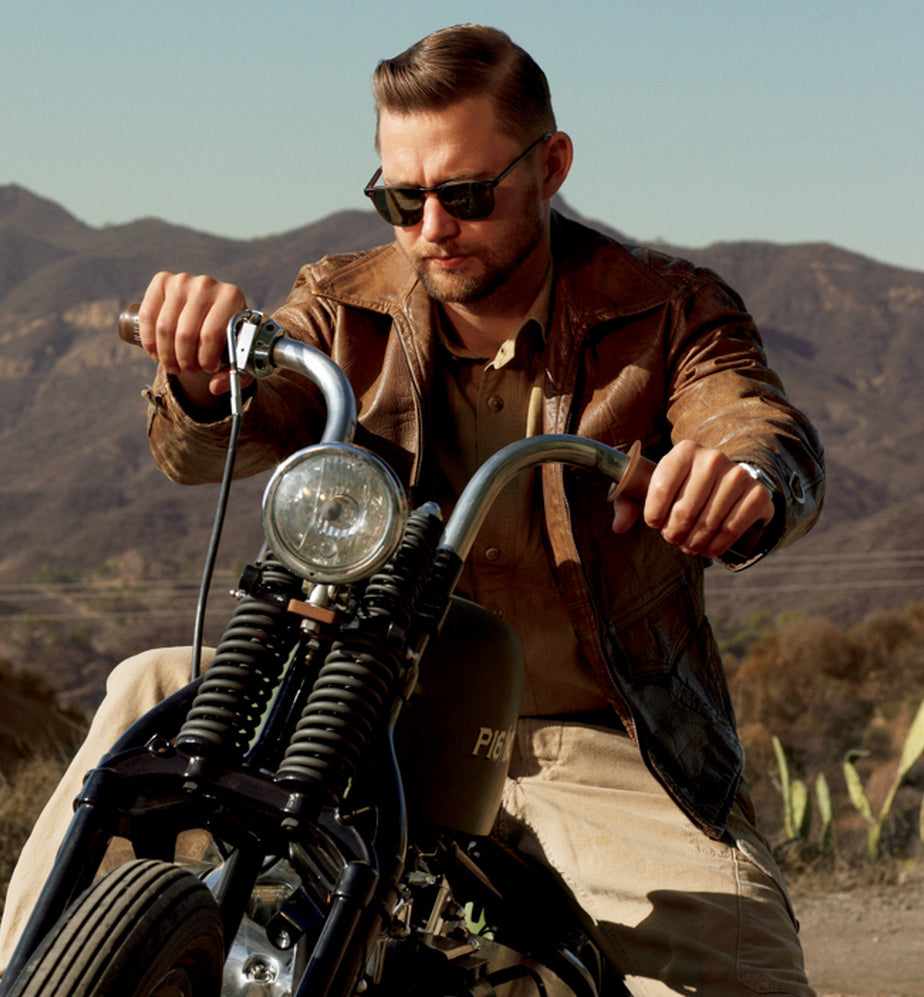
Brian Geraghty
BRIAN GERAGHTY

An actor finds his wave
The sun wasn’t shining in north Malibu, and the waters of the Pacific were a limb-numbing 59 degrees. It was the kind of gray and gloomy March morning when sensible men wrap themselves in woolen blankets, sip their coffee, and wait. But Brian Geraghty has never been a sensible man. If he were, he never would have become an actor, almost wholly on a whim, and he probably would have heeded the early warning signs that Hollywood didn’t want him (until, of course, it did). Posing as a local, he snagged a coveted parking spot, grabbed his custom Timmy Patterson board, and headed toward the surf, as westerly swells started rolling up in eight-foot sets.
Riding waves, it turns out, is an apt metaphor for how the 39-year-old veteran of The Hurt Locker, Flight, Jarhead, and Boardwalk Empire has plotted a course for his career. While his fellow surfers in the water that morning waited—and waited— for the perfect ride, Geraghty jumped on smaller swells. “I don’t get greedy,” he says, after climbing out of the water and settling down in the sand with a hot shot of caffeine. “It may not be the biggest wave, but you take it. And don’t look back.” With four new films on the horizon, including Loitering with Intent opposite Sam Rockwell, it’s a good thing he’s staring straight ahead.

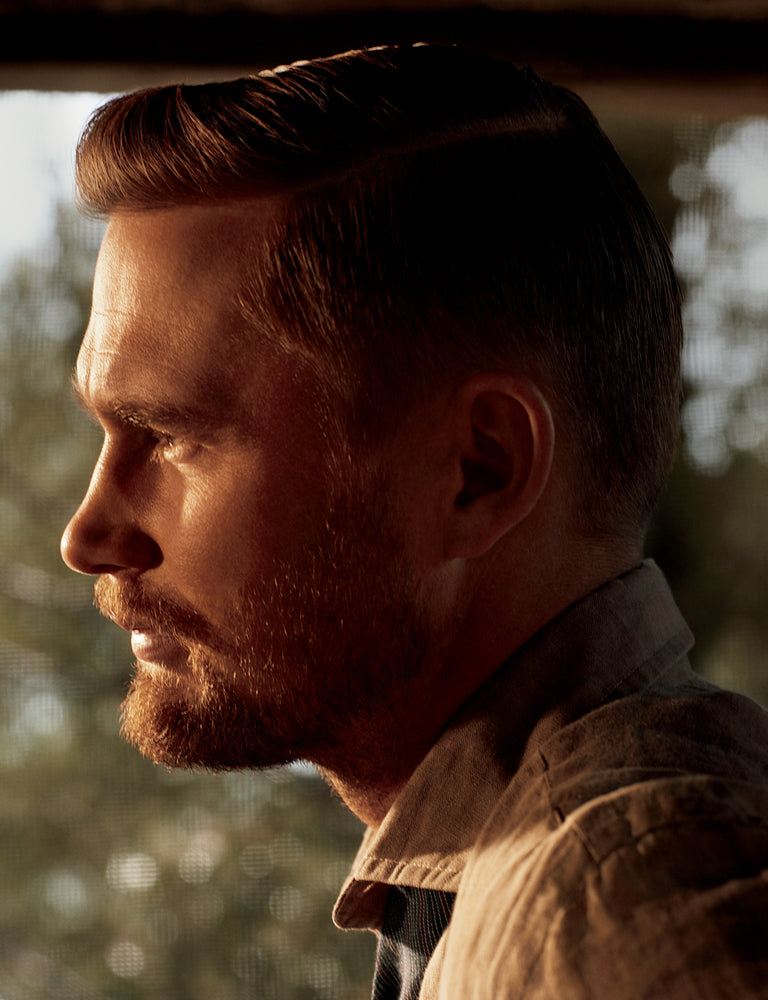
He wasn’t always this way. At Toms River High School East back in New Jersey, a young Geraghty dismissed classmates performing in the musical Grease as “theater geeks” as he drifted through his classes. “I had no chance of getting into any college worth going to except community college, which I tried for about an hour,” he says. His father, sensing it was better his directionless son try and fail at something than succeed at nothing, recommended he give acting a shot. (His other suggestion was DJ-ing.) Geraghty had recently seen Sean Penn play a condemned murderer in Dead Man Walking and puzzled over his performance like a mathematician stumped by a complex equation.
“I simply couldn’t understand how he became that person with that kind of intensity,” Geraghty says. His curiosity piqued, he auditioned for a slot at The Neighborhood Playhouse in New York — “poorly,” he admits. Even so, the acclaimed theater school saw something in the 21-year-old that he hadn’t recognized in himself: innate, unpolished talent.
As if it were a desk job he had to keep, he worked 9–5, missing, by his calculation, only a single day of class in his first year of the two-year program. “It was the first time I committed to anything in my life besides surfing,” says Geraghty, who took up the sport as a teenager. “I struggled at times, but it was the first time I felt I had accomplished something.”

“I don’t get greedy. It may not be the biggest wave, but you take it. And don’t look back.”
Others noticed, too, including a talent agent who signed Geraghty after seeing him in the conservatory’s hip-hop production of Ibsen’s Hedda Gabler. On his first audition, for a new cable series called The Sopranos — “I told my agent, ‘I’m sorry but I don’t know how to sing,’” Geraghty recalls with a laugh — he landed the part. The second time he was sent out for a job, a small part on Law & Order, he was hired again. “I said to myself, ‘This is really easy,’” Geraghty says. “And then I didn’t work for a year.”
Rejection is a constant in any actor’s life, and careers are defined less by how often the “Thanks-but-no-thanks” calls come in than by how well you absorb the blows. The velocity of his ascent and then descent was not lost on him, especially after he realized that just a few months earlier he had been eating off the same silver canapé trays he was now passing around as a cater waiter. TV commercials kept Geraghty in the game, and with a Bud Light spot here and a Burger King ad there, he was getting by, but also getting scared. His lingering fear that he wasn’t actually any good at acting began pressing in, crowding out his confidence. It only intensified after he left New York for Los Angeles. “I surfed my ass off, but I was struggling to make connections,” he says. “The first few years out here were just brutal.”
He was cast in a few forgettable TV roles and straight-to- Netflix indie films, and began to wonder if teaching women how to surf in Santa Monica, which he’d been doing on weekends, was actually his true calling. And then director Sam Mendes threw him a lifeline.
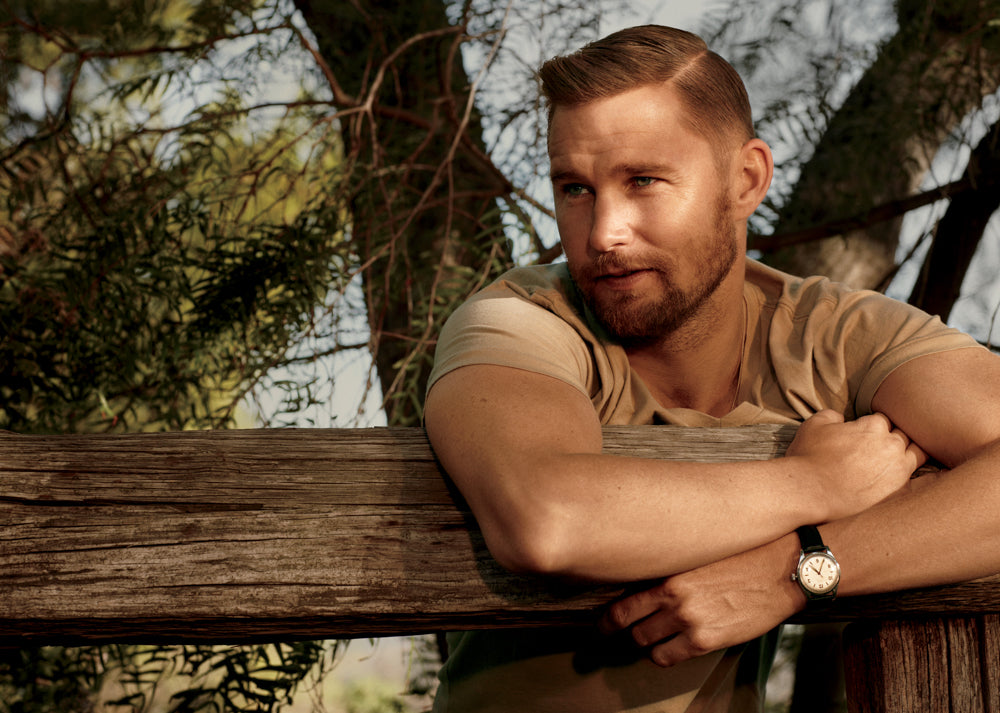
Unlike the bit parts Geraghty had been subsisting on, the raging marine character, Fergus O’Donnell, in Mendes’s Jarhead had meat on its bones. “I said, ‘I know how to do this. This is something I can understand.’” He rode his skateboard to the audition, and when he was asked to read a scene, all the years of uncertainty came pouring out. He left the room exhausted, but also with the part. His role in the critically acclaimed Gulf War film opposite Jake Gyllenhaal and Peter Sarsgaard brought him no shortage of attention, but it served a more important purpose, too: it reminded Geraghty that even if he had stumbled into acting, he wasn’t bad at it. “Finally, I could stand up and know that I did a good job,” he tells me.
As before, work wasn’t always steady after Jarhead, but Geraghty’s confidence was now strong enough to endure the lulls, even when they seemed interminable. Three years after Jarhead was released, he was cast opposite Renner as Specialist Owen Eldridge in The Hurt Locker. “We had all put our hearts and souls into it, but we had no idea what it was,” Geraghty says of director Kathryn Bigelow’s Iraq War bomb-squad drama. “But as soon as it came out, you could feel everything change. With that movie, it was like, ‘Okay. You’re here to stay.’” The film would go on to win the Oscar for Best Picture.

He most recently shared the cockpit with Denzel Washington in Flight, and it’s a testament to Geraghty’s adaptability and charisma that Washington, infamous for keeping his own council on set, immediately took a shine to him, running lines with his younger costar between takes. At the end of shooting, several crew members even asked Geraghty how many years he had been pals with the Training Day actor, whom he had only just met.
“I don’t care who’s in the movie,” says Geraghty, who just finished playing the doomed and double-dealing FBI agent James M. Tolliver in HBO’s Boardwalk Empire, and will soon produce and star in a feature about 1971’s infamous Stanford prison experiment, in which a group of college students selected to play guards morphed into full-blown sadists. “If I respond to the material, I will take a risk and do it,” he says. “It may not be good as defined by other people, but if I respond to it, it’s good.” If you’re going to bother to paddle out, in other words, take what rolls in. It may just lead to a remarkable ride.

